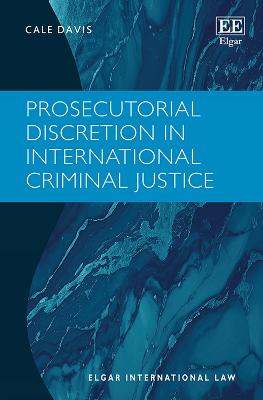
For many years, hidden from view in the secure corridors of The Hague, Arusha, and Freetown, international prosecutors have worked to bring those accused of international crimes to justice. Drawing on first-hand interviews with prosecutors, this book reveals what motivated their decisions—from opening investigations and selecting charges, right through to deciding whether to appeal.
The book explores the motivations and assumptions that underpin prosecutorial decision-making using in-depth analysis of interviews with current and former senior prosecutors from the International Criminal Tribunal for the Former Yugoslavia (ICTY), International Criminal Tribunal for Rwanda (ICTR), Special Court for Sierra Leone (SCSL), and the International Criminal Court (ICC). The author examines the diverse factors that have informed discretion by treating it as a practice. Cale Davis advances our understanding of discretion and exposes the importance of different roles in decision-making.
This book is an intriguing and beneficial read for both academics and practitioners of international criminal justice that directly challenges the contemporary perception of discretion. Featuring qualitative and empirical data, it is also useful for scholars interested in historical, sociological, and cultural anthropological perspectives on international criminal law.